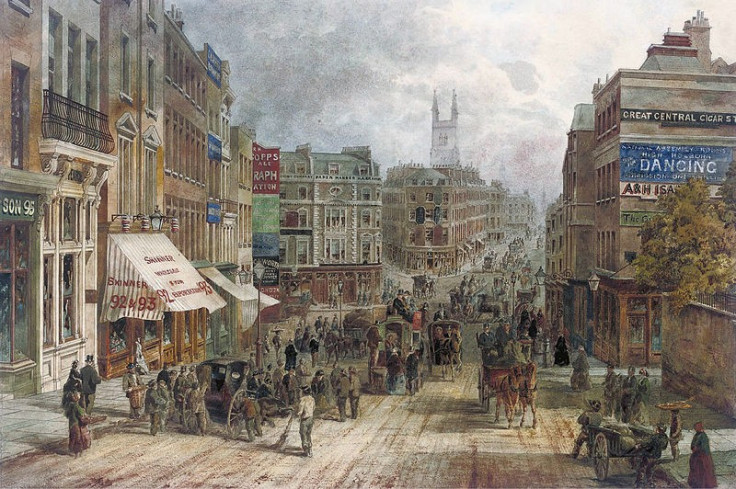Victorian Shopping List: Guns, Leeches, Arsenic and Pints of Animal Blood

Animal blood, arsenic, leeches and moustache grease were routine items bought by Victorian shoppers, audit records have shown.
Historic trade dictionaries have revealed life shopping on a typical Victorian high street, which often included a gunstore, leech merchant and tripe dressers.
Ancestry.co.uk reconstructed the average Victorian shopping trip by identifying the most common retailers from the records.
Between 1820 and 1893, the high street was in its infancy - Marks & Spencer opened as a market stall in Leeds in 884, while Sainsbury's opened in London in 1869 as a fresh food seller.
Now-extinct shops that a Victorian shopper would have frequented included the gun merchant, as pistols could be carried without a licence until 1870; tripe dressers, which sold the Victorian delicacy of animal stomachs; and leech merchants, which were recommended by doctors for the removal of bad blood.
Other shops included Japanners, which sold lacquer for furniture, snuffers, which sold conical metal items to put out candles, and wax merchants, both of which went out of business following the widespread introduction of electricity in the 20<sup>th century.
Pint of blood
Independent retail records show that green grocers, bakers and butchers were all in business in the 19<sup>th century, but popular items have changed. Butchers would regularly sell pints of slaughtered animal blood as it was thought to help tuberculosis if consumed once per week.
Chemists would sell arsenic to kill off mice and rats, as well as moustache grease for men to groom their facial hair.
Items still popular today include alcohol, with gin among the bestselling products at spirit merchants. Victorians also loved their pets as they do today and corn chandlers sold huge selections of animal grains and feed.
Fashion was also a big feature on the high street, with milliners the most common shop. As well as top hats, wire cravat stiffeners were another popular item for men, while women bought exotic bird plumes for fancy headwear.
Miriam Silverman, UK content manager from Ancestry.co.uk, comments: "Our ancestors will certainly have headed to the high street to pick up their shopping essentials, but it's interesting just how different this experience would have been and how fascinating the items were that our forbears would have bought regularly."
© Copyright IBTimes 2025. All rights reserved.




















